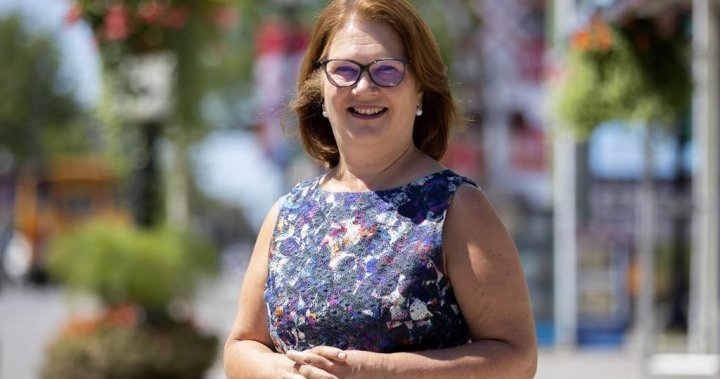OPEN EYES – Lisa Pauli wants her dead. Lisa is a 47-year-old woman who has suffered from anorexia for decades.
He said his relationship with his body had been disrupted since he was 8 years old.
Currently, Lisa says she weighs only 92 pounds (41 kilograms) and often goes without solid food for several days. He felt too weak to carry the groceries home without stopping to rest.
“Every day is hell,” he said. “I’m so tired. I’ve tried everything. I feel like I’ve lived my life.”
However, Lisa cannot legally get medical assistance in dying – yet.
In March 2024, expanding the criteria for assisted dying will allow Canadians like Lisa, whose only underlying condition is mental illness, to choose medical assistance in dying.
Canada legalized assisted dying in 2016 for people with terminal illnesses and expanded it in 2021 for people with incurable but not terminal illnesses. The law change was prompted by a court ruling that lifted the ban on helping people die.
The new mental health provision will make Canada one of the most extensive countries in terms of medical assistance in dying (MAID), according to a report by a panel of experts in the Canadian Parliament.
Proponents of assisted dying – which is still a new concept in many parts of the world – say it’s a matter of personal autonomy.
However, six disability rights and religious rights activists told Reuters that fast-track changes to Canada’s medical assistance in dying framework carry additional risks for people who choose MAID because they don’t cannot access social services – the shortcomings of which could exacerbate their suffering.
Canadian Justice Minister David Lametti dismissed criticism that his country was moving too fast or opening the system to abuse. Some disability activists have demanded the current framework be scaled back because they argue it harms people with disabilities.
“We have reached this point through very careful steps,” Lametti said in an interview with Reuters in June. “It’s been a slow and careful evolution. And I’m proud of it.”
In 2021, the number of reported physician-assisted deaths reached 10,064 people, or about 3.3% of the total number of deaths in Canada that year. This figure compares to 4.5% in the Netherlands and 2.4% in Belgium, where assisted death has been legal since 2002, according to official data from each country.
Most medically assisted deaths in Canada comply with the law, but provincial authorities say some cases merit investigation, according to previously unreported provincial government data. Provinces and territories are responsible for health care in Canada.
In 2021-2022, Quebec identified 15 cases of medical assistance in dying, or about 0.4% of the total, which did not respect the rules. The province has referred the cases to sovereign medical bodies and medical facilities, provincial spokeswoman Marie-Claude Lacasse said. In six of the cases, the person had no serious and incurable condition, according to the provincial commission.
In British Columbia, government officials have referred 19 assisted medical deaths to regulators and two more to law enforcement since 2018, according to a provincial spokesperson who did not provide further details.
None of the referrals in the two provinces resulted in disciplinary action against the doctors, said the regulator, which declined to provide further details.
More than 30,000 people have died with medical assistance in Canada since 2016, including more than 10,000 in 2021 when the law is expanded for people whose death was not “reasonably anticipated”. Even after changes to the laws, about 98% of assisted deaths in 2021 will be for people considered close to natural death, according to Health Canada data.
“To date, there is no indication that we should be worried that we have gone too far,” Lametti said.
This procedure is only available to people covered by Canada’s health care program. This requires a written request and evaluation from two independent doctors, at least one of whom specializes in their condition if the applicant is not near natural death. This procedure often involves injections given at home.
Lametti said the federal government is considering a recommendation from a parliamentary committee to allow advance requests and “adult children” – those under 18 deemed capable of making these decisions – to access assisted death. .

“Professional communicator. General music practitioner. Passionate organizer. Evil twitter fan.”






